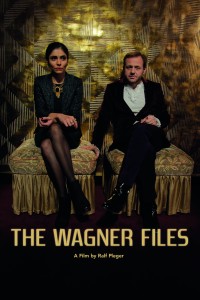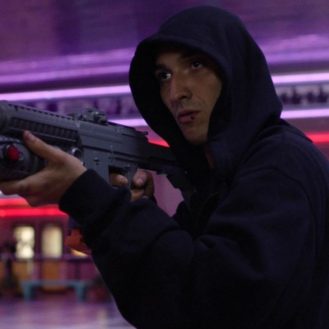By: Addison Wylie
German music composer Richard Wagner is an enigma of sorts and produced music on a grandiose scale. Ralf Pleger’s documentary The Wagner Files explains that Wagner’s lengthy compositions caused a stir in the 20th century and went on to be some of the most revolutionary work to exist in the world of music.
Richard Wagner is a provocative subject. His early failures with music erupted anger and vexation in him as he traveled all over Europe in a huff to find a calling for his operas. His upfront anti-semitism along with his softer side of appreciating lace and bold colours made him into even more of a rickety question mark. His impassioned compositions, however, have always stuck out as an influential musical landmark.
I can understand Pleger using Wagner’s works as the backbone of his documentary. Where the filmmaker majorly slips up is when he tries to have his movie match the intense theatrics that lie in the composer’s repertoire. Pleger ends up coming off as foolish for trying to make such things work in other forms.
Everything from the stiff portrayals of Wagner and his wife Cosima to the overblown sweeping cinematography to the booming accompaniment of Wagner’s music is all way too much. The operatic approach becomes more of a damp soap opera with seriousness at a nullifying degree. The moments that are supposed to represent how affective the music was and how the love affair between Richard and Cosima was poetic and tantalizing is cheesy. The mention of how arousing Wagner’s works were is intriguing but is smothered by continuous sequences of strained, lingering romance during the reenactments.
Additionally, The Wagner Files goes as far as to use cheap tactics of highlighting these moments through gorgeous but clunky imagery. For instance, when the music’s rising action is building, movie goers travel up a mountain followed by clips of snow capped peaks during the climax. There’s very little to get wrapped up in when Pleger’s doc is this figuratively incompetent.
During the interviews with Wagnerian experts, Pleger is compelled to make these more straight-laced sessions into portions that are as brash as Wagner’s music as well. The filmmaker will truck his camera to-and-fro whenever possible to keep these talky segments “exciting”. It’d be impressive if it didn’t distract from the vital information being given to the audience.
The film’s style is also that of a CSI episode. Interviewees inspect articles and artifacts as the camera jump cuts between medium shots and drastic closer views; all equipped with multiple lens flares that would make Jerry Bruckheimer roll his eyes. Outside the interviews, the filmmaker wishes to make Wagner’s journeys across Europe thrilling by adding filters and graphics you’d expect in a film starring Jason Bourne. It’s completely out of place, uncalled for, and ends up looking like a biopic about Carmen Sandiego more than an acclaimed, controversial artist.
An informative documentary about Richard Wagner is possible. Hell, even corny reenactments have a somewhat achievable chance to work (see: the unheard of documentary The Mystery of Mazo De la Roche). Ralf Pleger’s biggest mistake was trying to make Wagner’s legacy take the shape of too many things. He let the compositions take full control of the emotional overtones of each scene, the editing procedures, and the brash fashion of this whole thing.
Music can break down walls and become its own entity. Wagner proved that with his work. In the case of The Wagner Files, Pleger needed to leave the famous music alone and focus on making a straightforward, respectable movie with the works merely set the mood. It’s an exception where music needed to be what it’s intended to be – music.





Leave a comment